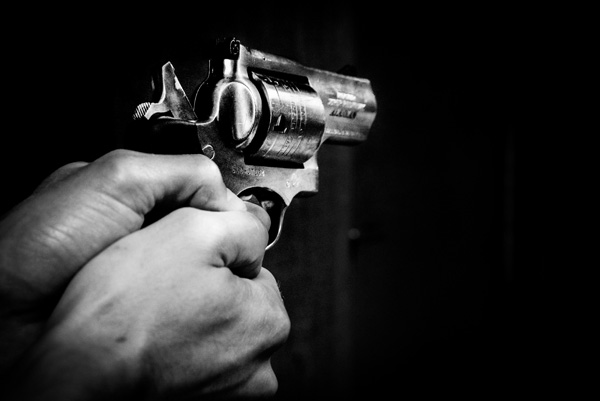U.S. insurance CEO assassination sparks national debate

[Gun, Photo credit: pxhere]
On December 4, 2024, UnitedHealthCare CEO Brian Thompson was assassinated outside the New York Hilton Hotel.
Thompson was en route to attend an investor conference when the gunman approached and fatally shot him.
The assailant fled the scene but was later identified days later as Luigi Mangione, a 26-year-old Maryland native.
Mangione was arrested on December 9 in Altoona, Pennsylvania, after a customer at the fast food chain McDonald’s recognized him.
Authorities found Mangione in possession of a 3D-printed firearm, fake IDs, cash, and a three-page manifesto.
The manifesto contained anti-corporate sentiments, labeling insurance executives as “parasites” who deserved punishment.
Investigators linked Mangione’s actions to his frustrations with the U.S. healthcare system and private insurers.
Police disclosed that the bullets found at the scene were engraved with words “delay,” “deny,” and “defend.”
These engravings mirrored public criticisms about insurers delaying or rejecting medical claims.
UnitedHealthCare has faced heavy scrutiny for its high rate of claim denials, which reportedly rose under Thompson’s incumbency.
Reports indicate that the company’s pre-approval denial rate increased from 10.9% in 2020 to over 30% in 2023.
The incident has reignited public criticism of America’s privatized healthcare system and the power of insurers.
UnitedHealthCare, the largest U.S. insurance provider, controls significant market share and wields considerable influence over industry standards.
Public sentiment following the assassination turned against Thompson rather than the perpetrator.
Social media platforms were inundated with comments criticizing Thompson and expressing support for Mangione.
UnitedHealthCare disabled the comment section on its Instagram memorial post for Thompson due to backlash it received.
Shortly after, the company removed executive profiles and information from its official website.
Mangione’s background came as a surprise to many, as he hailed from a wealthy family and had no known criminal record.
He also graduated from the prestigious University of Pennsylvania with degrees in computer science and a career experience in the tech industry.
Mangione also maintained ties to prominent figures, including a relative who serves in Maryland’s legislature.
His manifesto and online activity revealed admiration for radical anti-corporate figures like the “Unabomber.”
The weapon used in the assassination—a 3D-printed “ghost gun”—has sparked new emerging security concerns.
Ghost guns, which lack serial numbers, are untraceable and can be easily assembled using online kits.
Experts noted that such kits are legal in many states and can be purchased for as little as $100.
The assassination marks one of the first known U.S. murders committed using a 3D-printed firearm.
Political figures, including Bernie Sanders, have highlighted the systemic healthcare issues fueling public outrage.
Sanders pointed to the millions of uninsured Americans and the billions wasted on excessive administrative costs.
The incident also revived interest in films like Sicko, which criticize U.S. healthcare inequalities.
Comedian Colin Jost commented on public reactions, underscoring widespread disdain for the healthcare system.
Police reported Mangione’s bullets symbolized anger at insurers' claim denials and their financial priorities.
The manifesto included statements like “these parasites deserve it,” fueling debates on corporate accountability.
Some analysts interpret the assassination as a symptom of deep systemic failures in healthcare and wealth inequality.
UnitedHealthCare remains the focus of public outrage, as many view the incident as emblematic of broader issues.
Healthcare advocates see the incident as a wake-up call for a reform in the privatized insurance industry.
Mangione faces murder charges in New York and weapon-related charges in Pennsylvania.
As the case progresses, it raises critical questions about healthcare, corporate ethics, and access to justice.
The broader implications of the assassination reveal the public’s growing frustration with systemic inequities.
Authorities continue to investigate Mangione’s motives and his broader anti-corporate ideology.
The event underscores the mounting tension between public dissatisfaction and corporate power in America.
This tragedy serves as a flashpoint for discussing the failures of the U.S. healthcare system.
It also highlights the risks posed by emerging technologies like 3D printing in criminal activities.

- Jeongmin Kim / Grade 10
- Chadwick International School

![THE HERALD STUDENT REPORTERS [US]](/assets/images/logo_student_us.png)
![THE HERALD STUDENT REPORTERS [Canada]](/assets/images/logo_student_ca.png)
